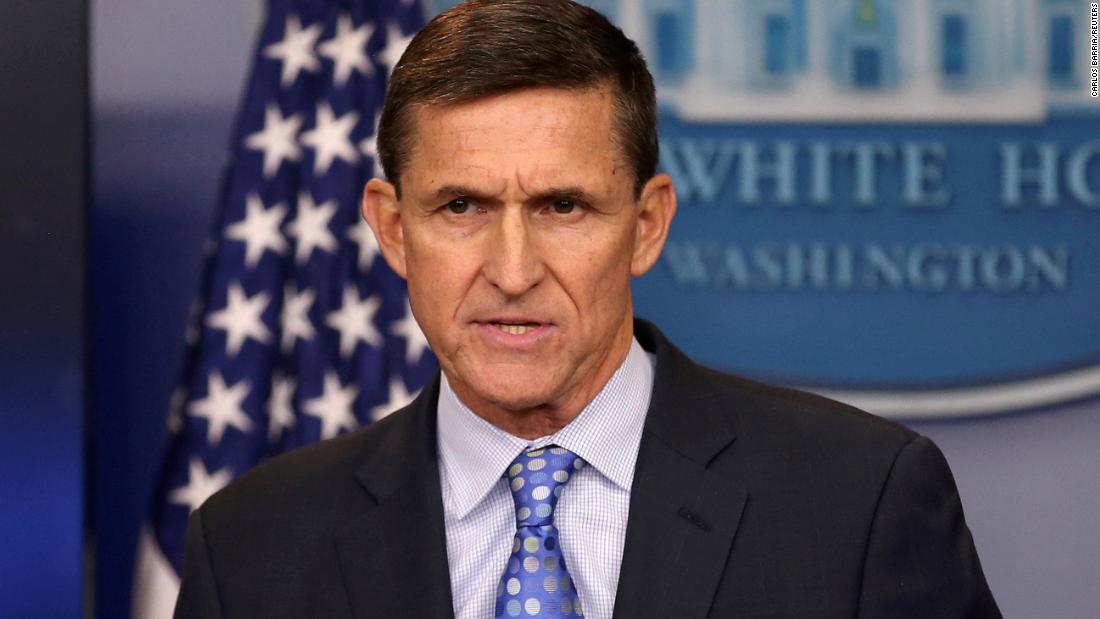[ad_1]
In the interview described in the memo, Flynn lied about his contact during the presidential transition in 2016 with then-Russian ambassador to the United States, Sergey Kislyak. At times, Flynn offered the FBI agents more benign descriptions of what he and Kislyak had said about Russian policy.
In all, the newly released memo shows clear examples of Flynn denying he had made policy requests of Russia, and the agents prodding him toward fuller descriptions of the calls.
The release of the memo Monday night — on the eve of Flynn’s criminal sentencing for lying to investigators — sets up a clearer picture of what he said to the FBI agents in January 2017. Flynn pleaded guilty to lying to investigators in that interview and about his lobbying for the Turkish government. He will likely face zero to six months in prison, though Mueller’s team has asked the judge to give him no prison time because he has helped their investigation, along with other federal probes.
Whether the FBI decided Flynn was lying at that moment has become a touch point in President Donald Trump’s recent attacks on the Mueller investigation. Trump has latched on to whether Mueller pursued Flynn on a criminal charge at odds with the FBI’s initial findings. Former FBI agent Peter Strzok’s participation in the Flynn interview — and the fact that Flynn was not warned he could be prosecuted for lying and had no lawyer in the room with him when he met with the FBI at the White House — has also cast political shadows on the case.
Trump has alleged the FBI determined that day that Flynn hadn’t lied. Yet the memo from January 24, 2017, that was released Monday night does not say the FBI agents made any determinations at that time. The memo only outlines what Flynn said in a straightforward manner.
The subsequent criminal complaint, filed by Mueller’s office in December 2017, outlined how Flynn’s retelling of the conversations was wrong.
A memo released by Mueller’s office last week described how the FBI had known the facts of Flynn’s conversations with Kislyak before the agency approached him in the West Wing. A separate memo filed with the court last week summarized how Strzok recalled he “had the impression at the time that Flynn was not lying or did not think he was lying.”
Two lies
The memo describes how Flynn downplayed the approach he had taken in his discussions with Kislyak when FBI agents asked about the discussions in the January 2017 interview. He told the agents that “no,” he had not sought to influence Russia’s vote on a United Nations Security Council resolution about Israeli settlements.
But investigators knew, according to charging documents filed last year, that Flynn had asked for Russia to vote against or delay the resolution.
Flynn’s second lie, as described in the FBI memo, came in response to the agents asking him about the US’s expulsion of Russian diplomats or closing Russian properties following the Kremlin’s interference in the 2016 election. They asked him if he had encouraged Kislyak not to retaliate.
“Flynn responded, ‘Not really. I don’t remember.’ It wasn’t, ‘Don’t do anything,’ ” the memo said.
But the FBI knew that Flynn had asked Russia on that call not to escalate its response to the US.
That call came among a series of phone calls between Flynn and Trump officials, including some who were at Mar-a-Lago along with the President-elect. Those calls between Trump advisers and Flynn were revealed in Flynn’s charging document and not described in the January 2017 FBI memo released Monday.
Flynn made the calls around Christmas 2016 from the Dominican Republic, where he was vacationing with his wife. Kislyak had texted Flynn on December 28, 2016, asking him to call, which set off the series of calls in the following days.
The FBI memo also describes Flynn’s interactions with Russian officials, trips to the country and the relationship he developed with Kislyak through when he became national security adviser. Those events date back to 2013, when he was the first Defense Intelligence Agency director to visit the Russian military intelligence headquarters, and another visit years later.
Twice in late 2016, Flynn called Kislyak to express condolences, after the assassination of a Russian ambassador in Turkey and the crash of a Russian military plane.
“Flynn does not know if Putin and Trump will get along, but it is Flynn’s job to figure out paths to work with Russia to fight terrorism,” the FBI memo said.
This story has been updated.
[ad_2]
Source link

